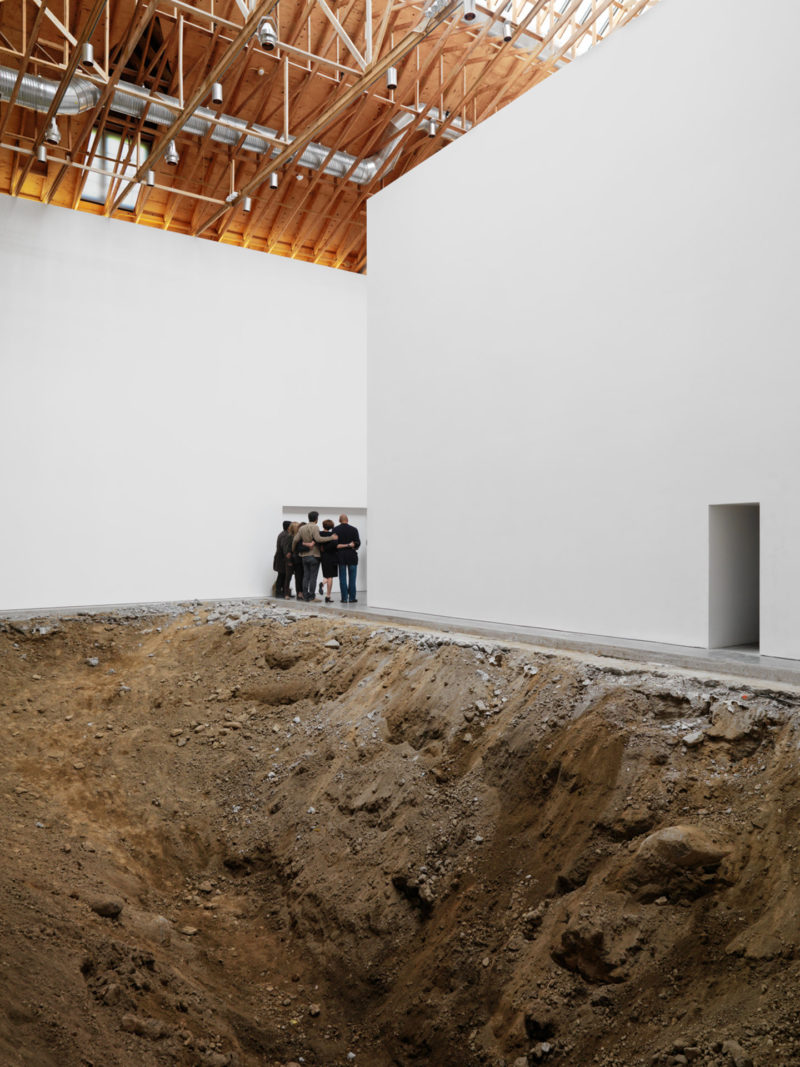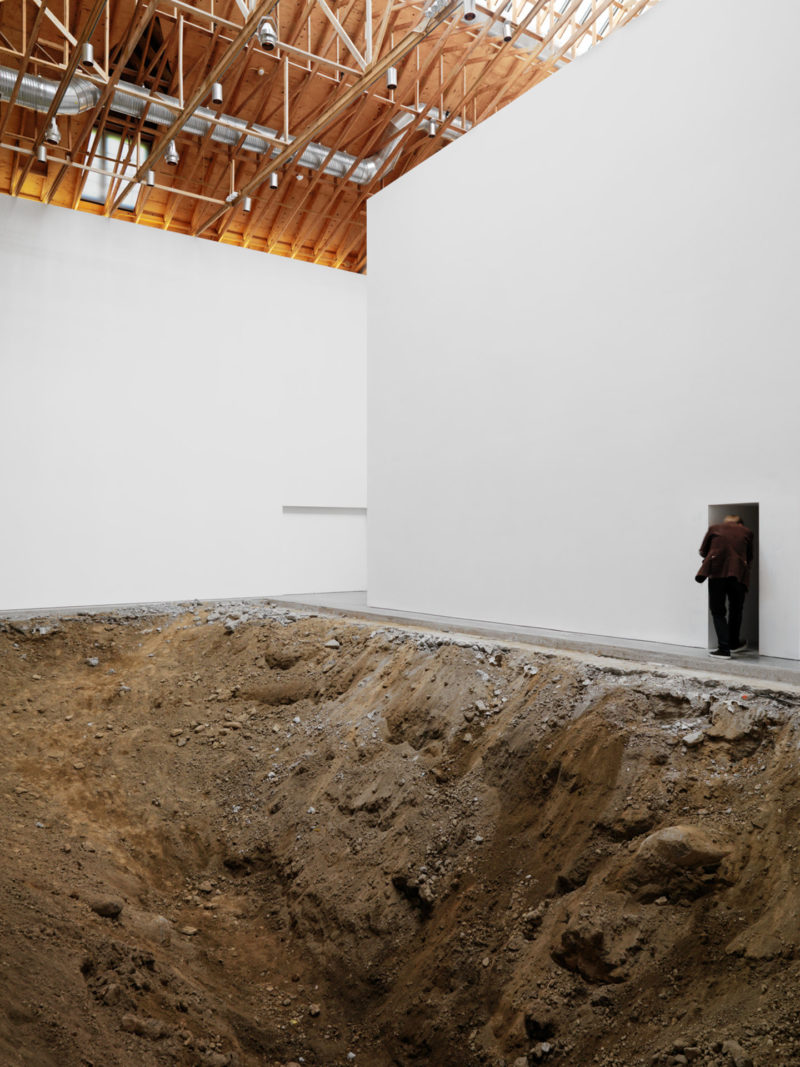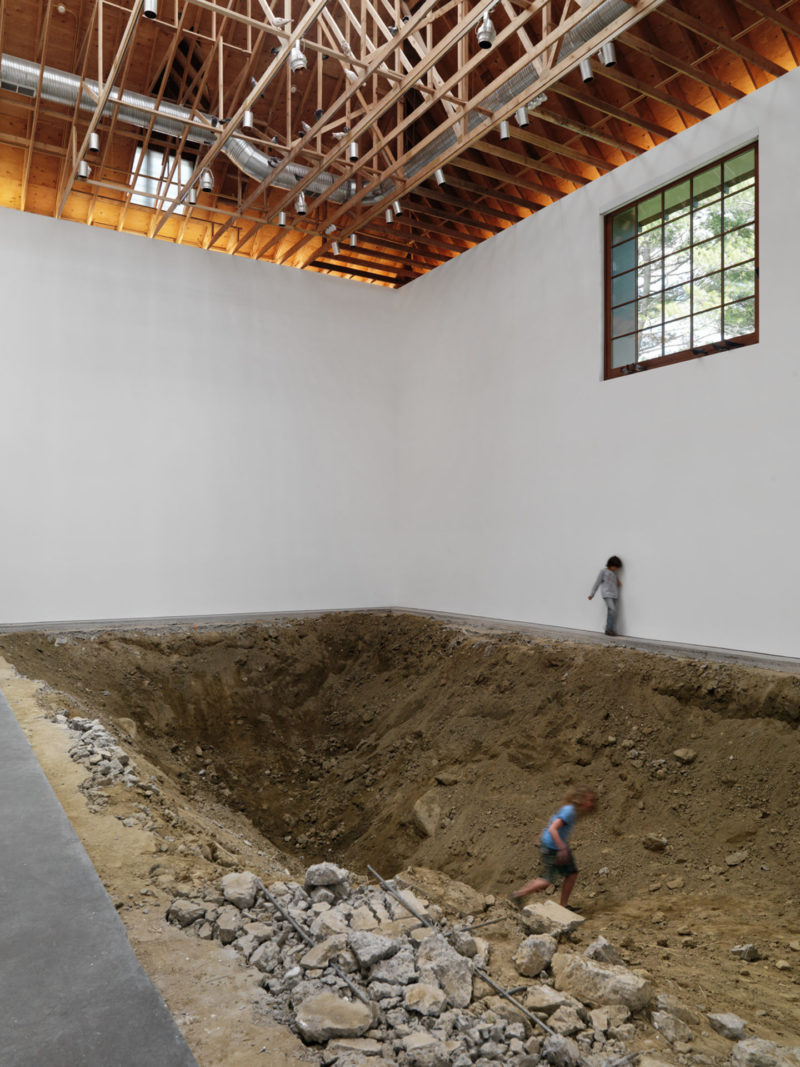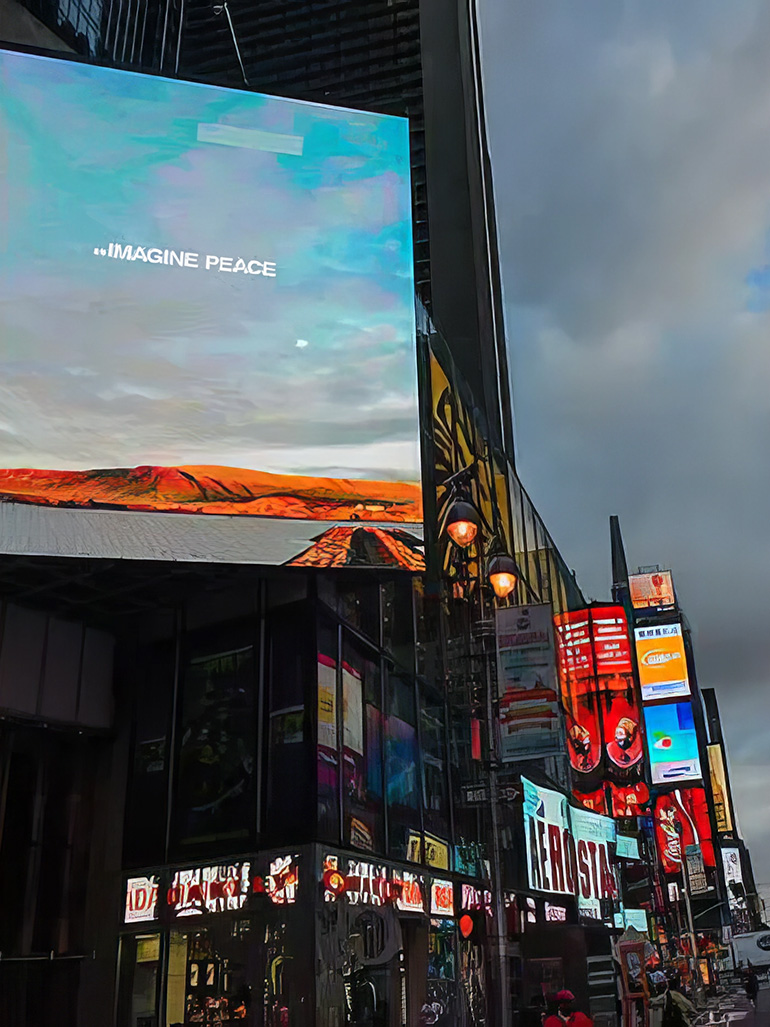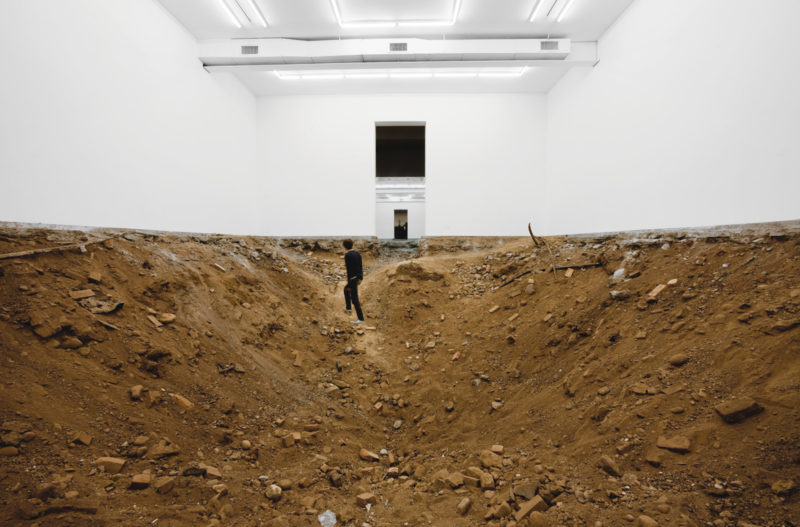
Introduction
Urs Fischer 1 is a Swiss-born visual artist that now lives in New York City 2. His artwork includes installation, sculpture, and photography. Fischer has produced an enormous number of drawings, collages, room-size installations and other objects.
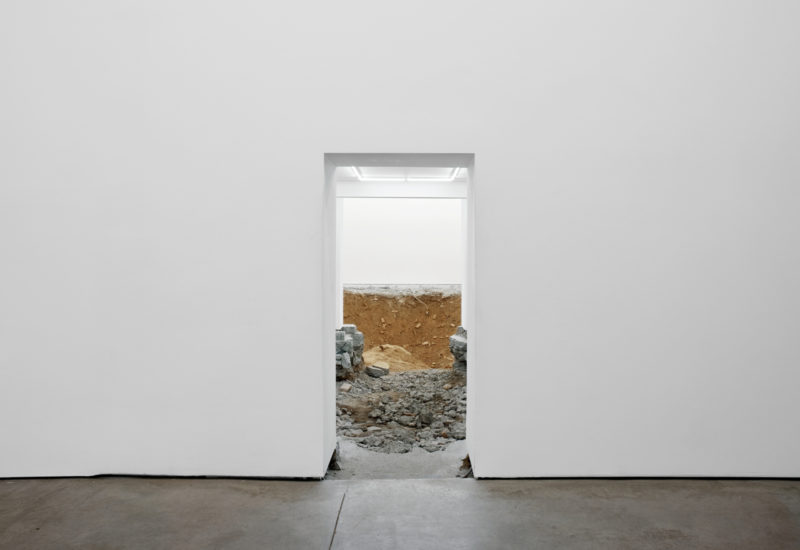
One of his best-known works is You. You was an impressive installation, created by Urs Fischer in 2007 for Gavin Brown’s enterprise gallery 3. The contrast between the white exhibition walls and the hole dug by the artist created a hot debate.
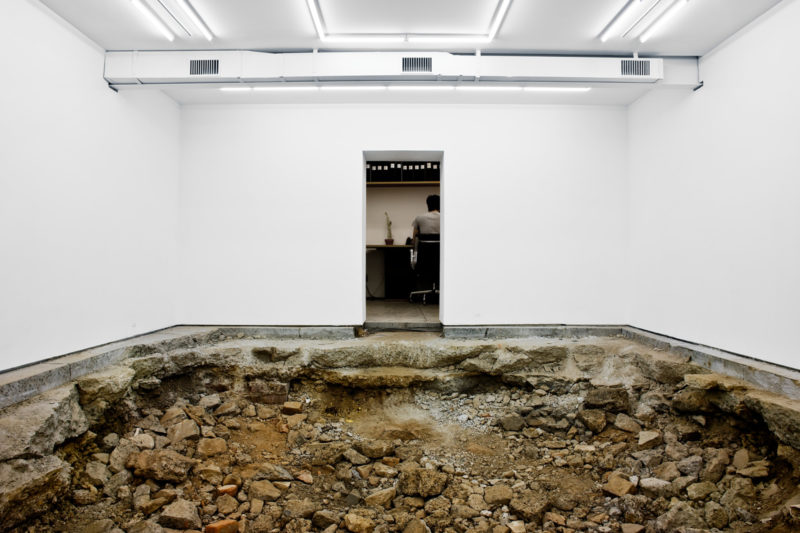
You, 2007
You was an eight-foot deep crater that measured approximately 11,6 x 9,1 m (38 x 30 ft.), extending almost to the walls of the gallery. It was dug within the pristine white walls of the New York-based gallery.
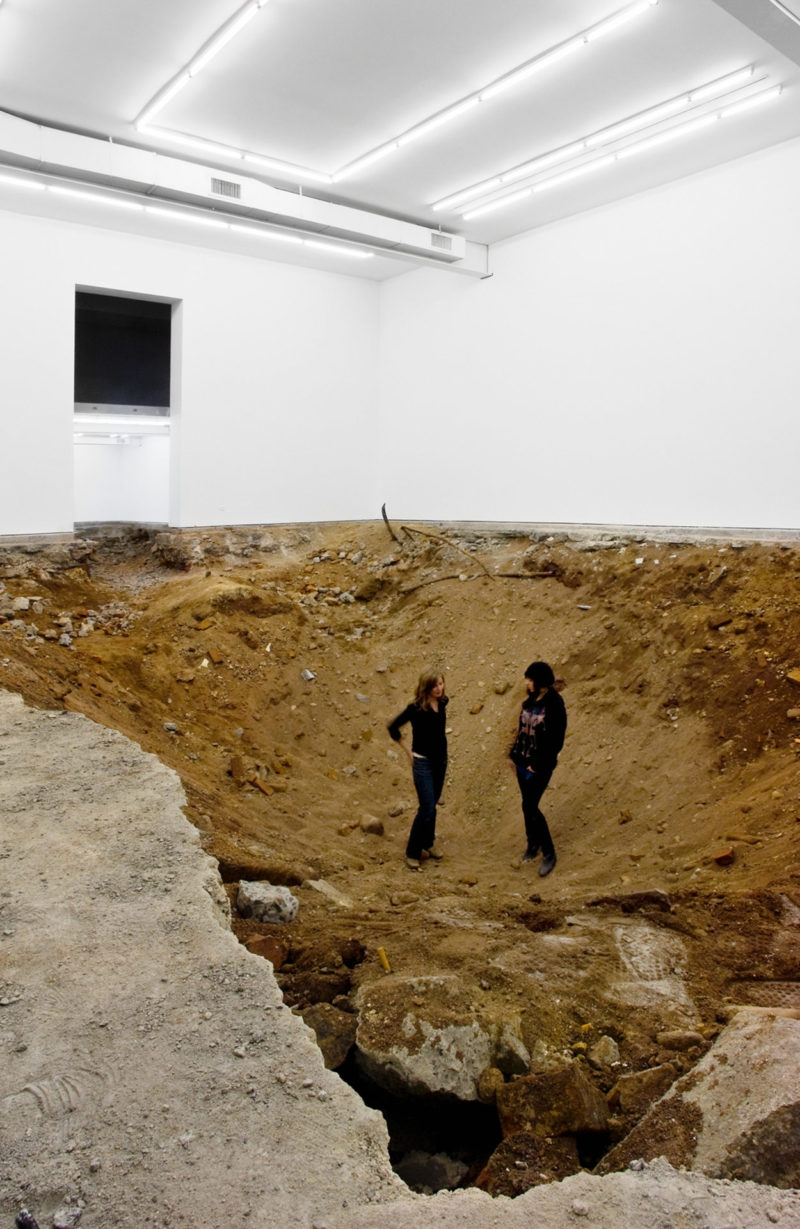
According to New York Magazine 45, the pit took ten days to build and approximately $250,000. The same report shows that it was dug using jackhammers to remove the concrete floor. The workers used a backhoe to clear the tons of debris around the area.
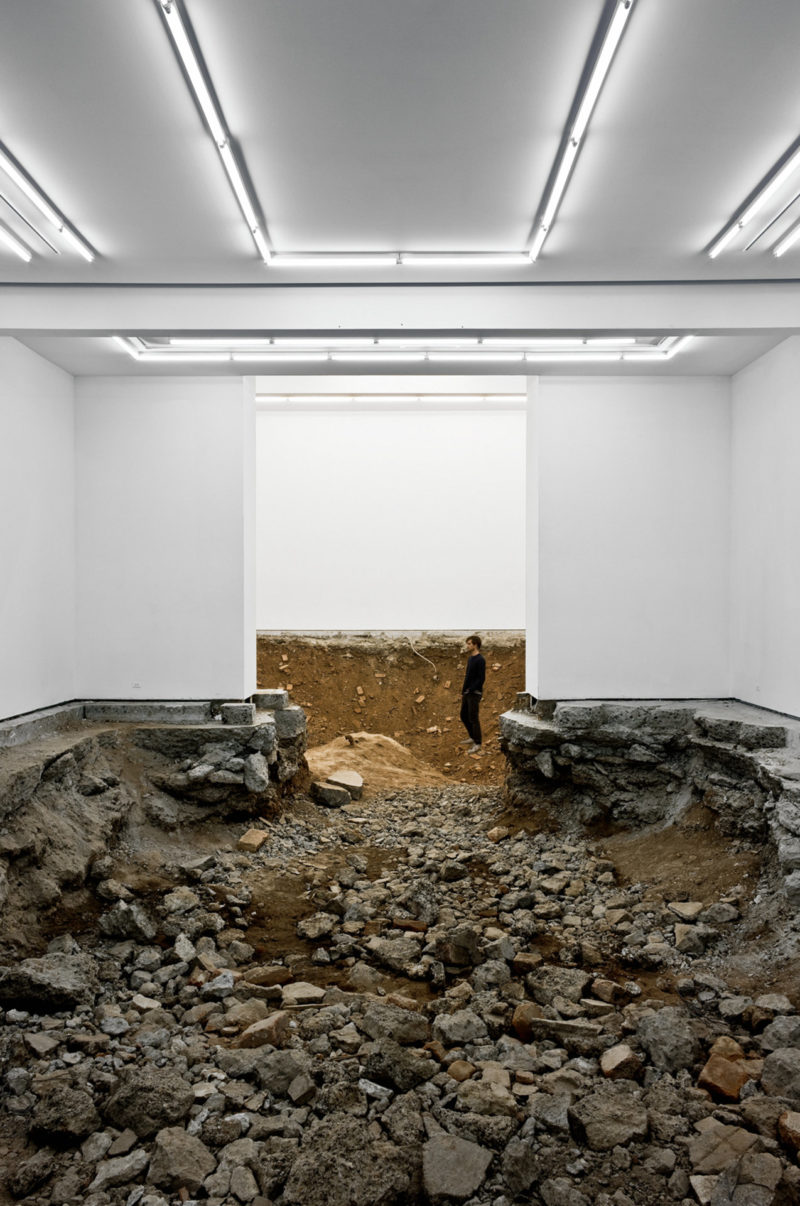
A sign at the door warned:
THE INSTALLATION IS PHYSICALLY DANGEROUS AND INHERENTLY INVOLVES THE RISK OF SERIOUS INJURY OR DEATH.
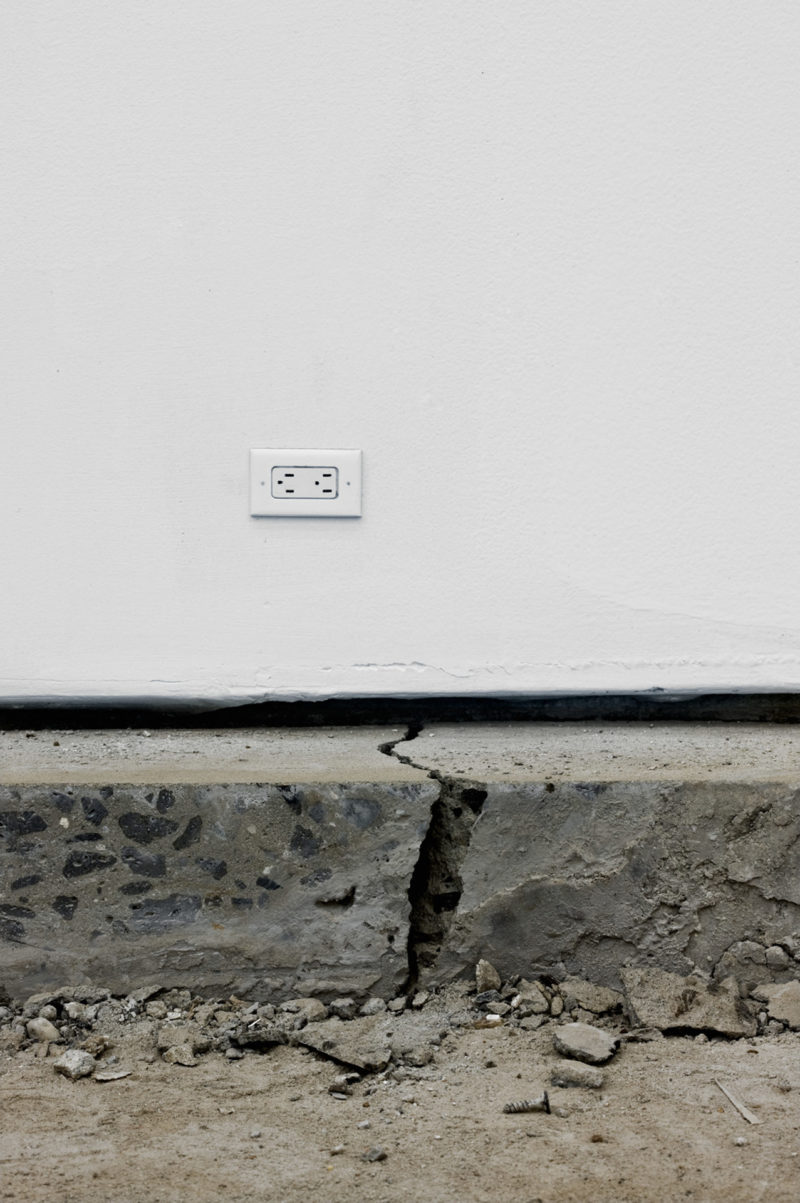
In an interview 67, Gavin Brown describes the process of creating the work:
The landlord was a meat distributor and he worked on the other end of the building. His guys were moving meat with forklift trucks from freezers to trucks. We were digging a gigantic hole with massive jackhammers and trucks pulling away filled with dirt.
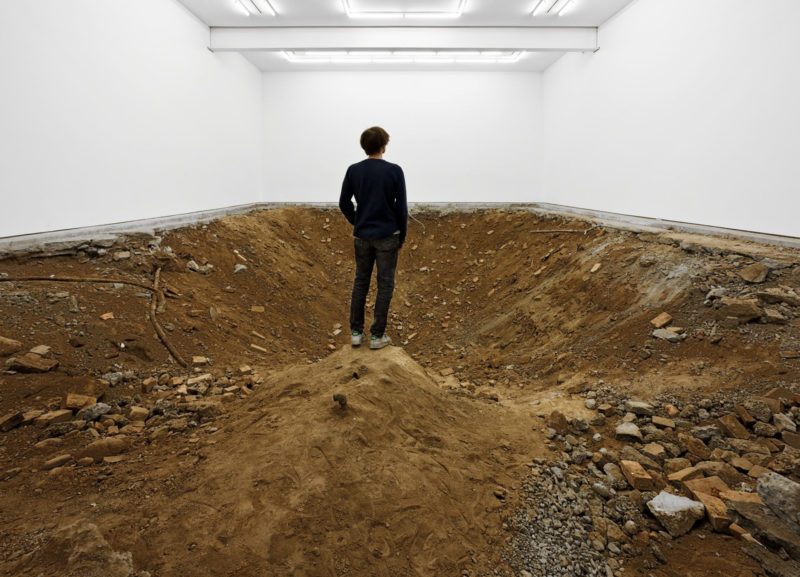
After employees of the landlord noticed their boss, he reacted as expected:
I was upstairs in my office and Urs came up to me and said “you got to come downstairs because the landlord is completely freaking out”. The landlord is a little Italian American guy and he starts screaming at me, “what the f*** are you doing?!” At that point there was a massive hole and we basically had done the work.
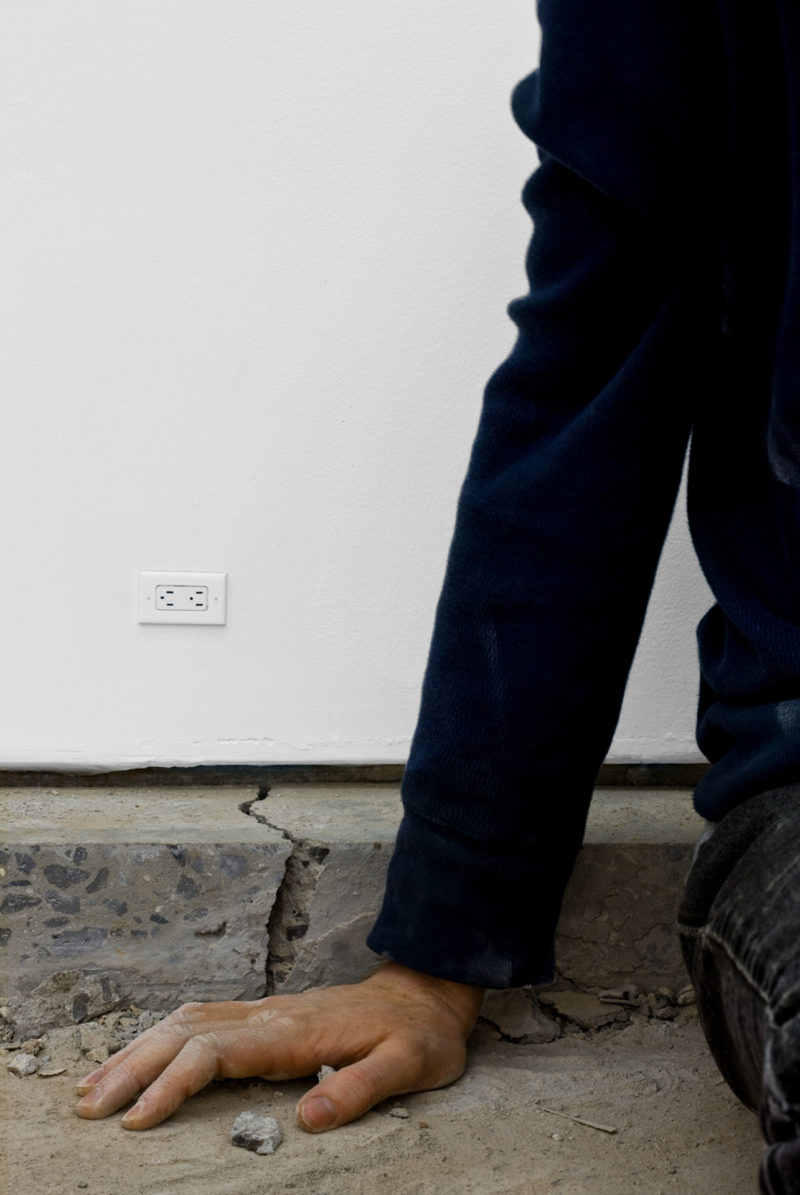
Brown continued:
It was just a matter of closing up the wall and then the landlord had not known what we were doing but he managed to find out just before that. I just acted stupid and I said “my guys told me I had to change the slab.” The landlord was red in the face and spitting. Somehow I managed to calm him down and he just walked off. The next day we closed up the wall and we were alright.
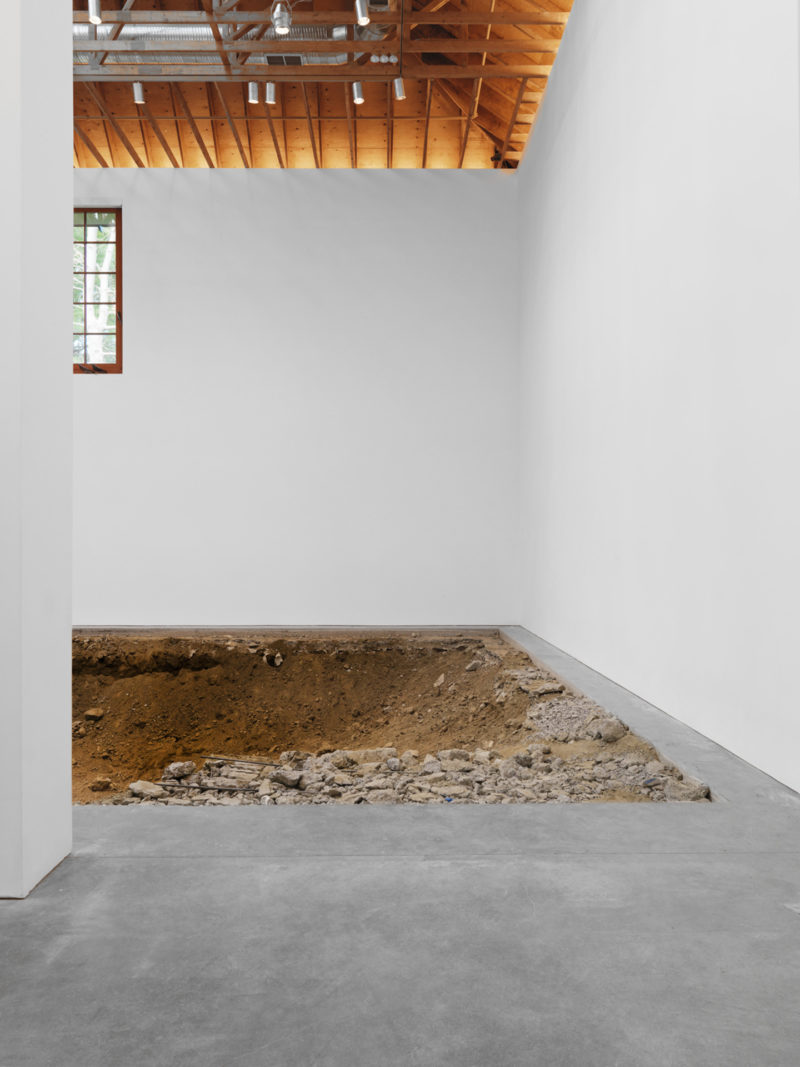
Another edition of You got installed at the Brant Foundation in 2011. In both cases, the artist consulted with engineers and knew how far he could go, not going too close to the foundations of the buildings.
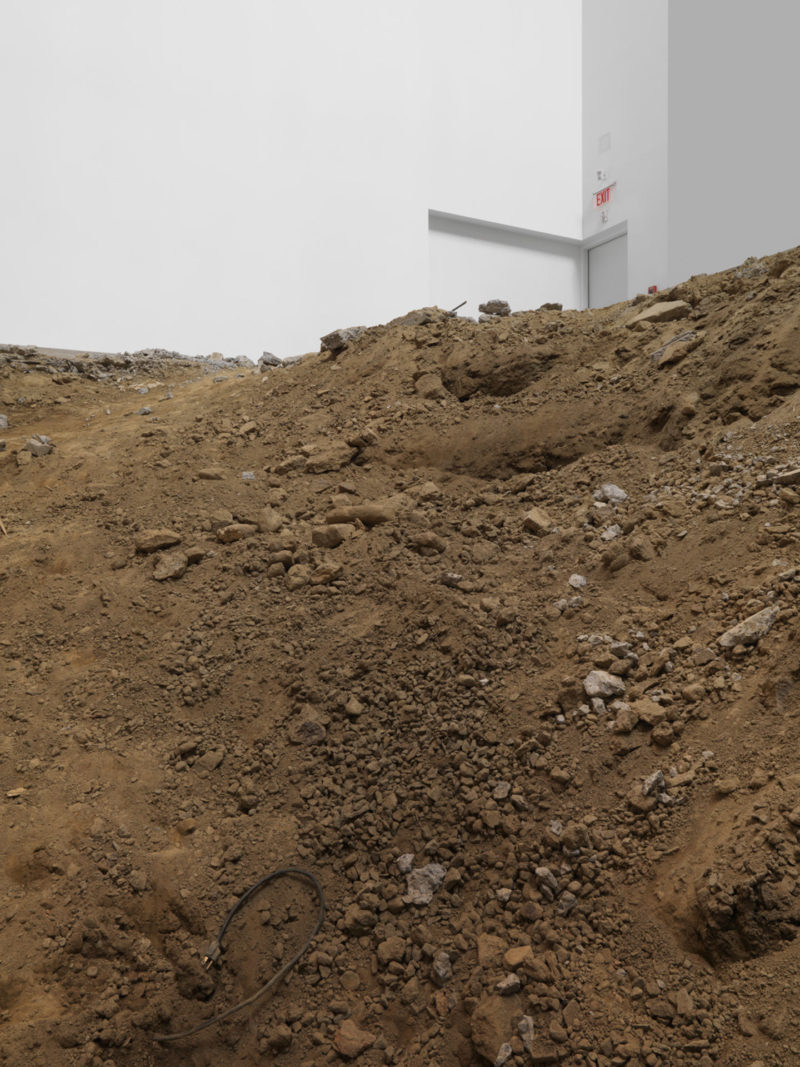
Analysis
You made space tangible in a simple yet strange and expressionistic way. The chasm dominates your vision and takes over the room. As your vision regulates, it’s time for your internal ear as you confirm that you are standing at floor level. As you survey everything from this unfamiliar roost, more details will come into your focus.
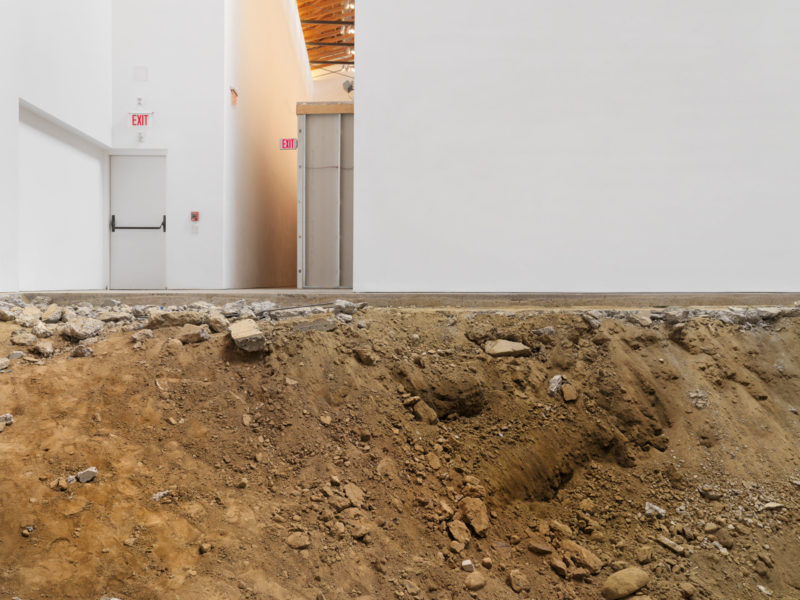
Gallerist Gavin Brown showed a lot of faith in Fischer by letting him rip through the concrete and fill the space with a vast open trench of dirt. Fischer brought together the themes of transformation, destruction, and disruption.
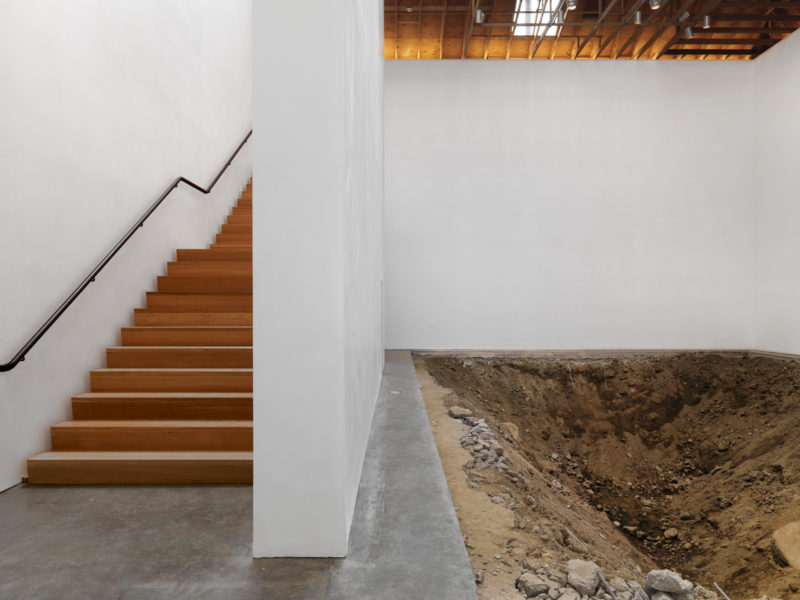
References
You was experientially rich, vibrant with energy, and crowded with incongruity. It was topped off with the tale of rebellion, a tale that is to the history of empty-gallery-as a work of art.
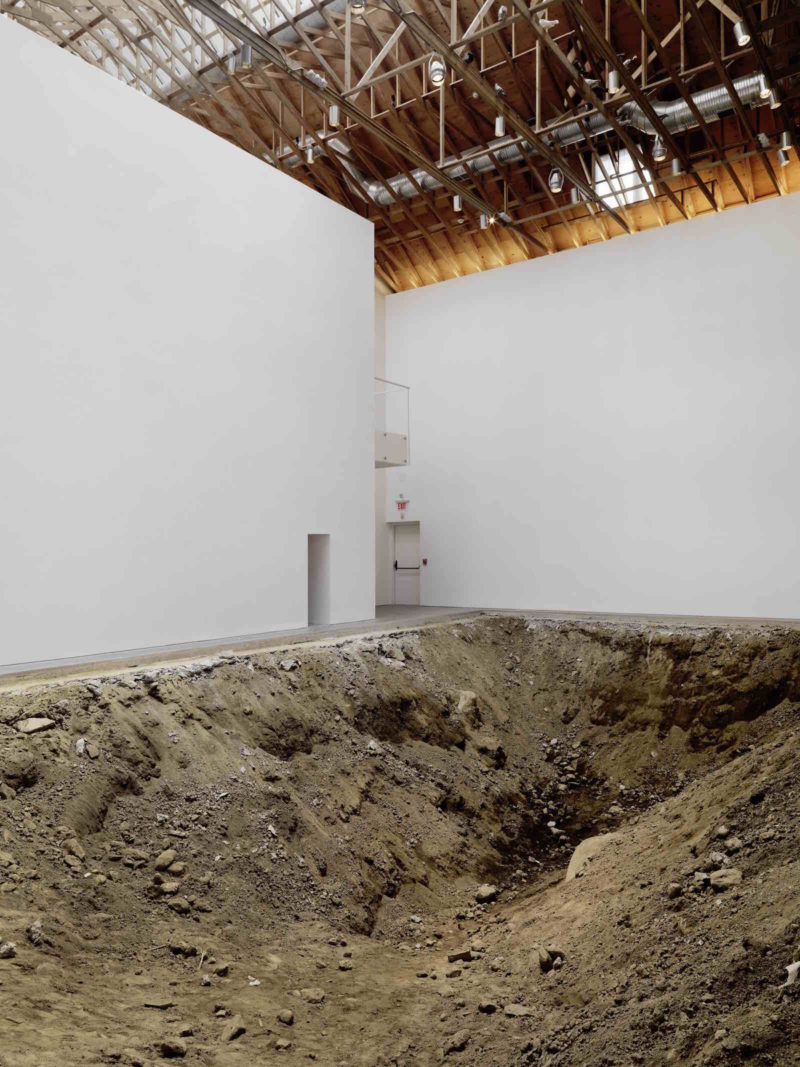
The artwork made a clear touch on the tradition of indoor earthworks, especially those from the 1960s and 1970s. Some of these prominent works were created by Gordon Matta-Clark, Walter De Maria 8, Chris Burden 9 and Robert Smithson 10.
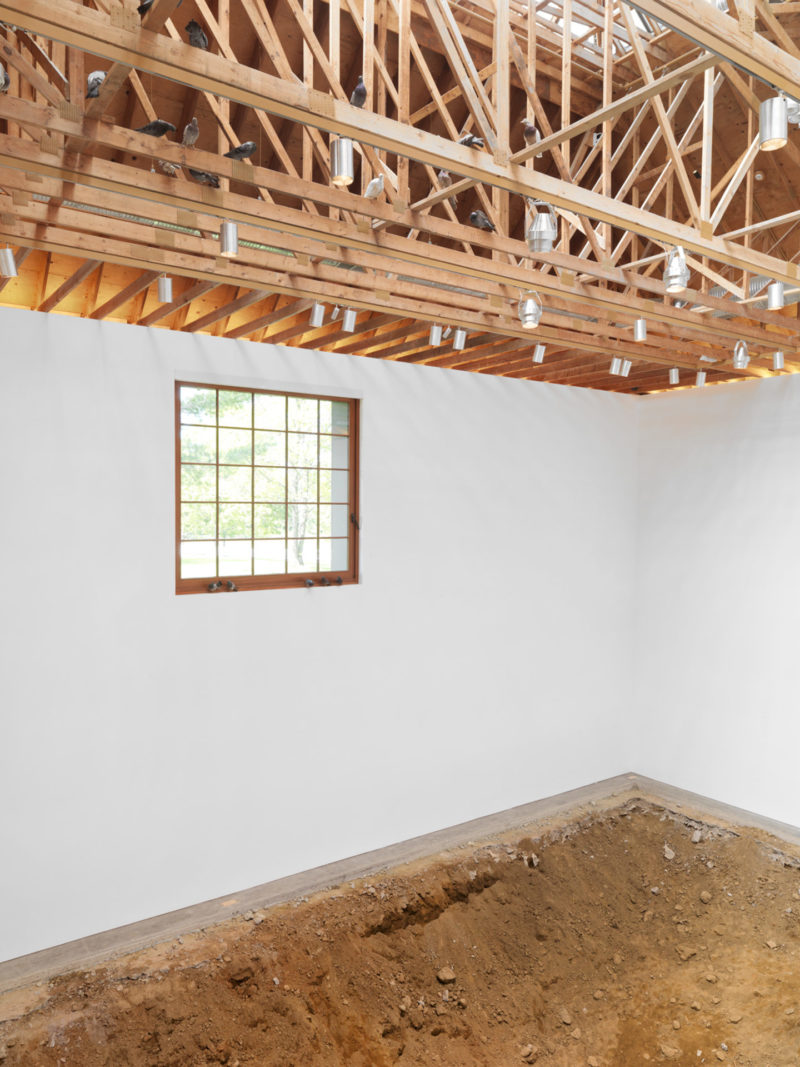
In 1986, Los Angeles-based artist Chris Burden 11 conceived the work Exposing the Foundation of the Museum 1213 in which he also dug holes in an annex of Los Angeles’ MoCA.
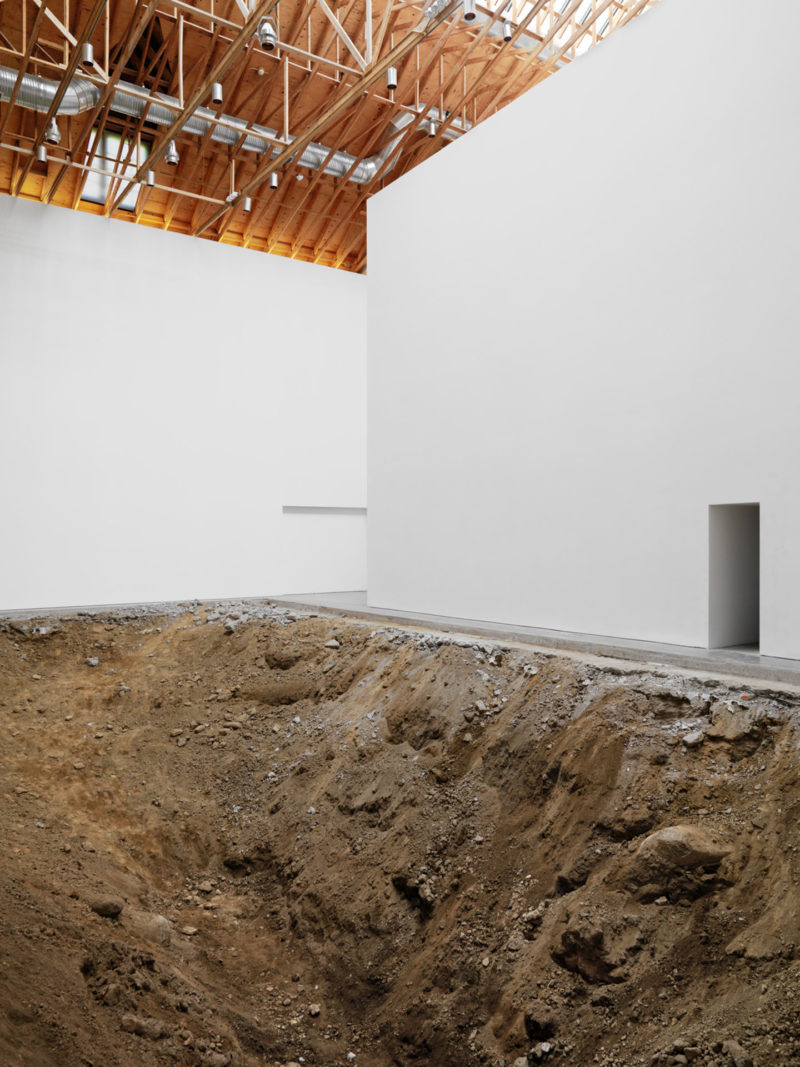
Conclusion
If you look at it closely, You is less a destructive work of anti-art. In simple terms, You is a tracing of Brown’s gallery and galleries in general. It pulsates with energy with the abstract presence of traditional artworks and bizarrely celebrates the artspace itself.
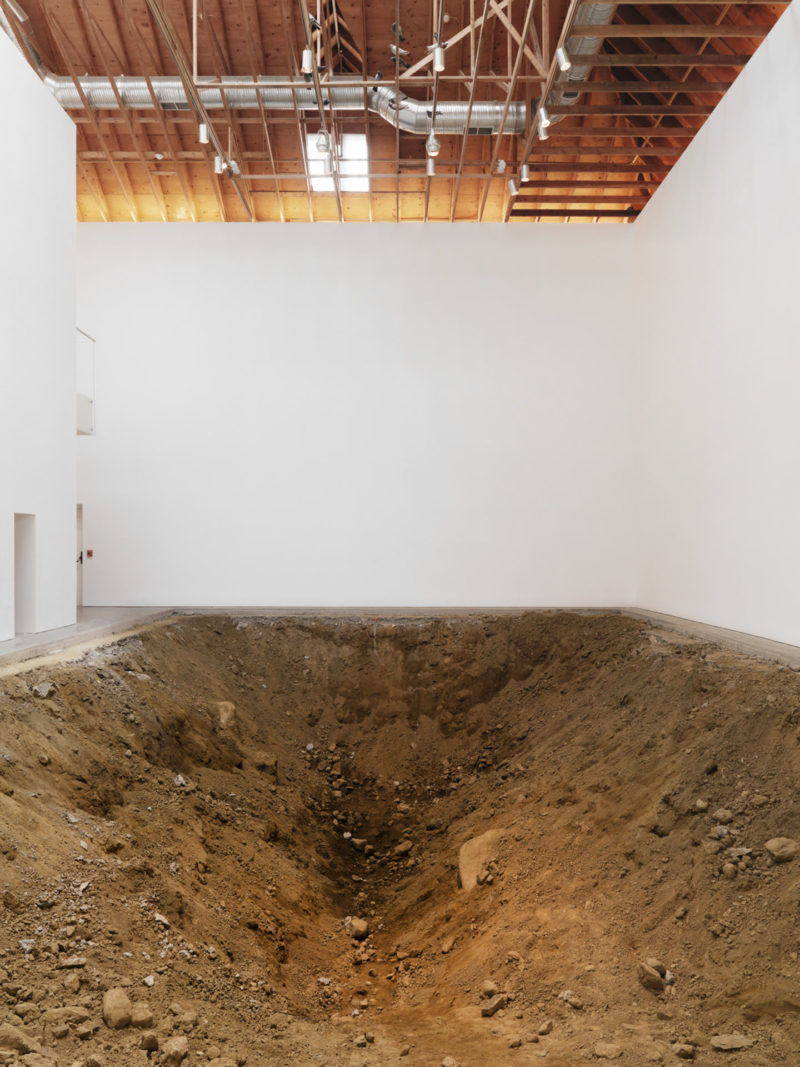
Fischer looked closely at the rich history of artists before him. Walter de Maria’s New York Earth Room 1415 is only housed 10 blocks away. Fischer opened the opportunity for visitors to walk from one dirt-filled art space to another.
